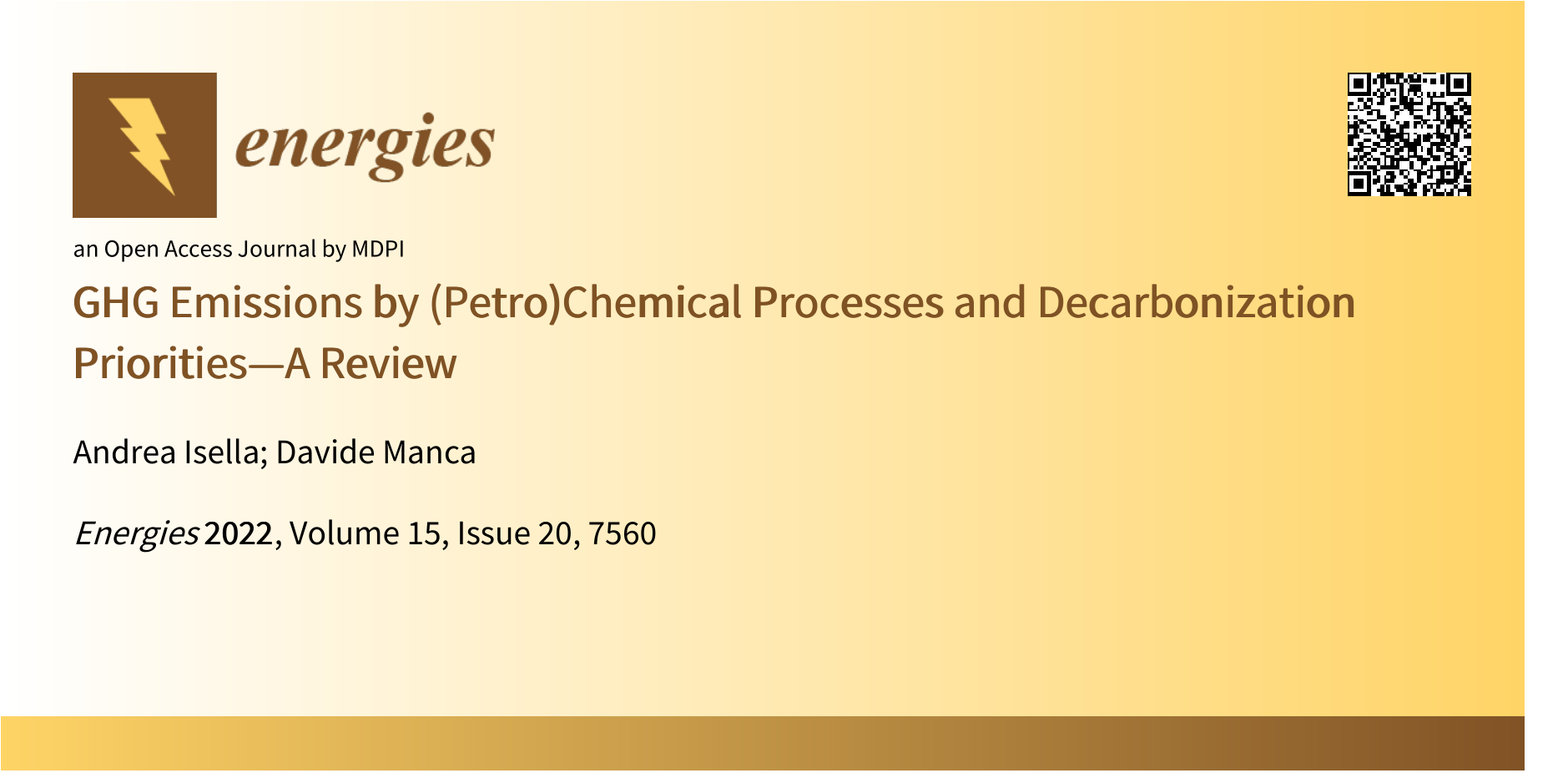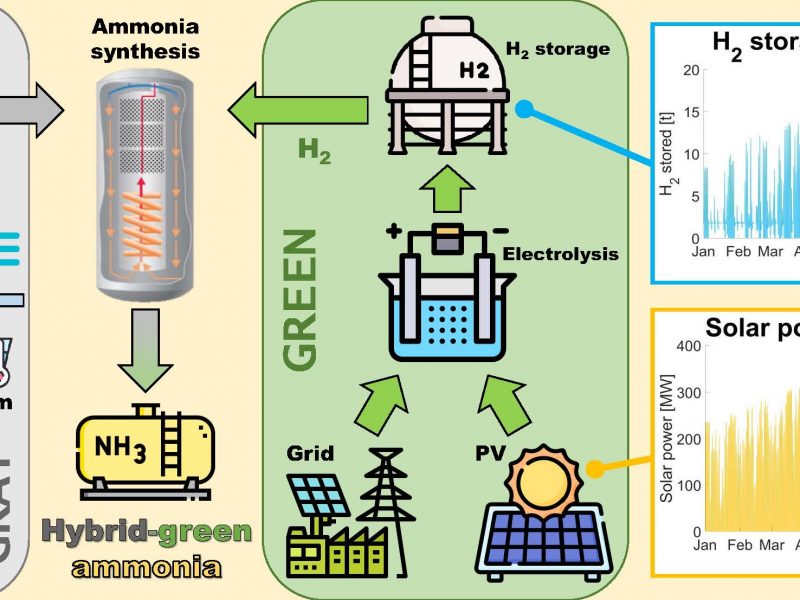The PSE-Lab just published a review which focuses on anthropogenic greenhouse gas emissions by adopting a general global approach. The paper reports a list of the most carbon-intensive syntheses with details on the main chemicals and processes. Specifically, the productivities of such chemicals and the gate-to-gate emission factors of the processes were analyzed, compared, and discussed. This work aims to provide a reference list and suggest a methodology that can be updated periodically and referred to when having to deal with decarbonization policies in the chemical industry.
It is published as Open Access in “Energies“, a MDPI journal:
GHG Emissions by (Petro)Chemical Processes and Decarbonization Priorities—A Review
Andrea Isella, Davide Manca
DOI: 10.3390/en15207560
Abstract
Global warming is becoming an increasing issue, and greenhouse gas (GHG) emissions represent the engine of such a phenomenon. This review aims to identify the origin of GHG emissions and focus in detail on the ones related to (petro)chemical industries. The industrial sector is the primary GHG emitter among all the other anthropogenic sources. The chemical industry is the first in charge of that (having accounted for about 6.5% of the global GHG emissions in 2018). Thought-provoking data such as yearly productivities and emission factors related to the predominant chemicals prompt the reader to acquire a sense of the critical activities responsible for carbon-intensive emissions, which should be the first to be decarbonized. Specifically, ammonia synthesis and steam cracking resulted in the most polluting processes of the chemical industry, being responsible for the release of about 440 and 228 Mt-CO2,eq/y, respectively, in 2020. The same approach also applies to oil refining. Due to the massive amounts of oil barrels produced daily, oil refining is a key player in industrial GHG emissions (about 3% of the global emissions in 2018). Indeed, in 2020, refineries emitted nearly 1313 Mt-CO2,eq/y.
Keywords: greenhouse gas emissions · climate change · carbon intensity · green policy · methodology · chemical industry · oil refining · commodities · energy
The full article can be freely viewed and downloaded HERE.


